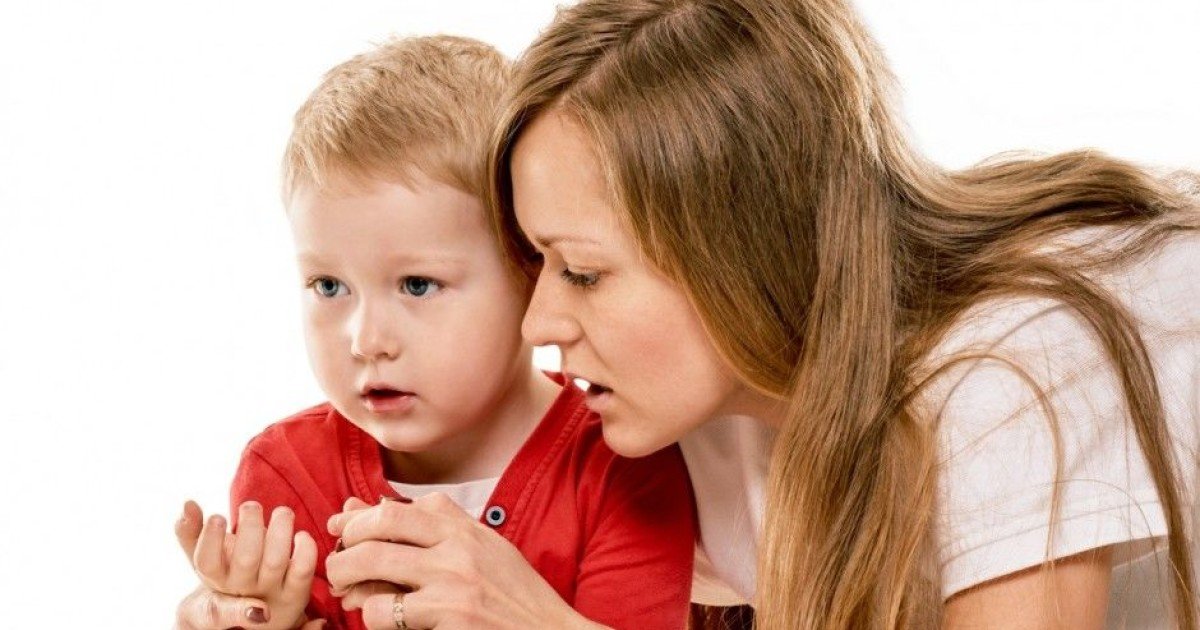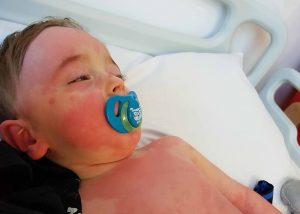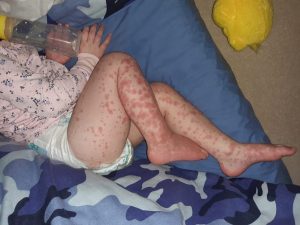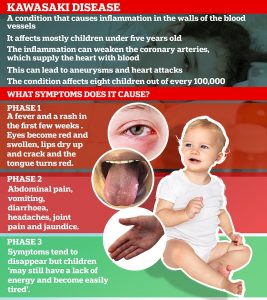Gemma Brown from the UK has claimed that her son Bertie got to the Worcestershire Royal hospital last month on his second birthday, when his temperature soared over 40C (104F) and a blotchy rash turned into a darker hue.
He has since been diagnosed as a patient of the Kawasaki disease, a form of toxic shock syndrome that actually makes the immune system misled over the target of its protection and actually makes it battle the organs inside. Despite a possible link between Kawasaki disease and coronavirus was reported throughout the medical community, however, he was not given a COVID-19 verification test.
‘I don’t know how the Government is going to prove there’s a link if they’re not testing patients.
I asked for him to be tested, as I had a gut feeling that there was a connection between covid and Kawasaki. Both attack your immune system and the whole family had been poorly with Covid symptoms before Bertie fell ill. I was adamant that there was a link and was begging for a test, but they just told me that there was no need to test the under-fives.
’
Immunoglobin transfusion had to be given to Bertie and he was to spend for five days in the hospital. ‘It was horrific seeing him like that. He didn’t have any respiratory problems but he was put in a ward on his own and he was easily the most poorly child in the hospital. His rash had started out being itchy, but it quickly put him in agony. His temperature was dangerously high and they were monitoring him round the clock.’
Bertie has always had a weak immune system due to his premature birth. ‘Thank God he is OK now and has come home, though he’s still on Aspirin to prevent his blood clotting. He’s much better in himself. But the fact is that we just don’t know what’s been going on as he wasn’t tested for coronavirus.’
A spokesperson for the relative medical facility has put out this statement: ‘While we are unable to comment on the healthcare of individual patients, we would like to reiterate the national guidance that any person with coronavirus-like symptoms should self-isolate for at least seven days, and to contact their GP should these symptoms persist for longer than a week.
In most cases, children seem to be less susceptible to the effects of coronavirus than adults, however we would encourage any parent who has a child suffering from an urgent or pressing health concern, such as chest pain and a persistent high temperature, to seek help by calling NHS 111 or – in the most serious cases – 999.
’
NHS doctors have been warned to look out for severe reactions in children.
If you liked this article, please LIKE SHARE AND COMMENT below! And don’t forget to check our other articles along the way!
Replaced!





